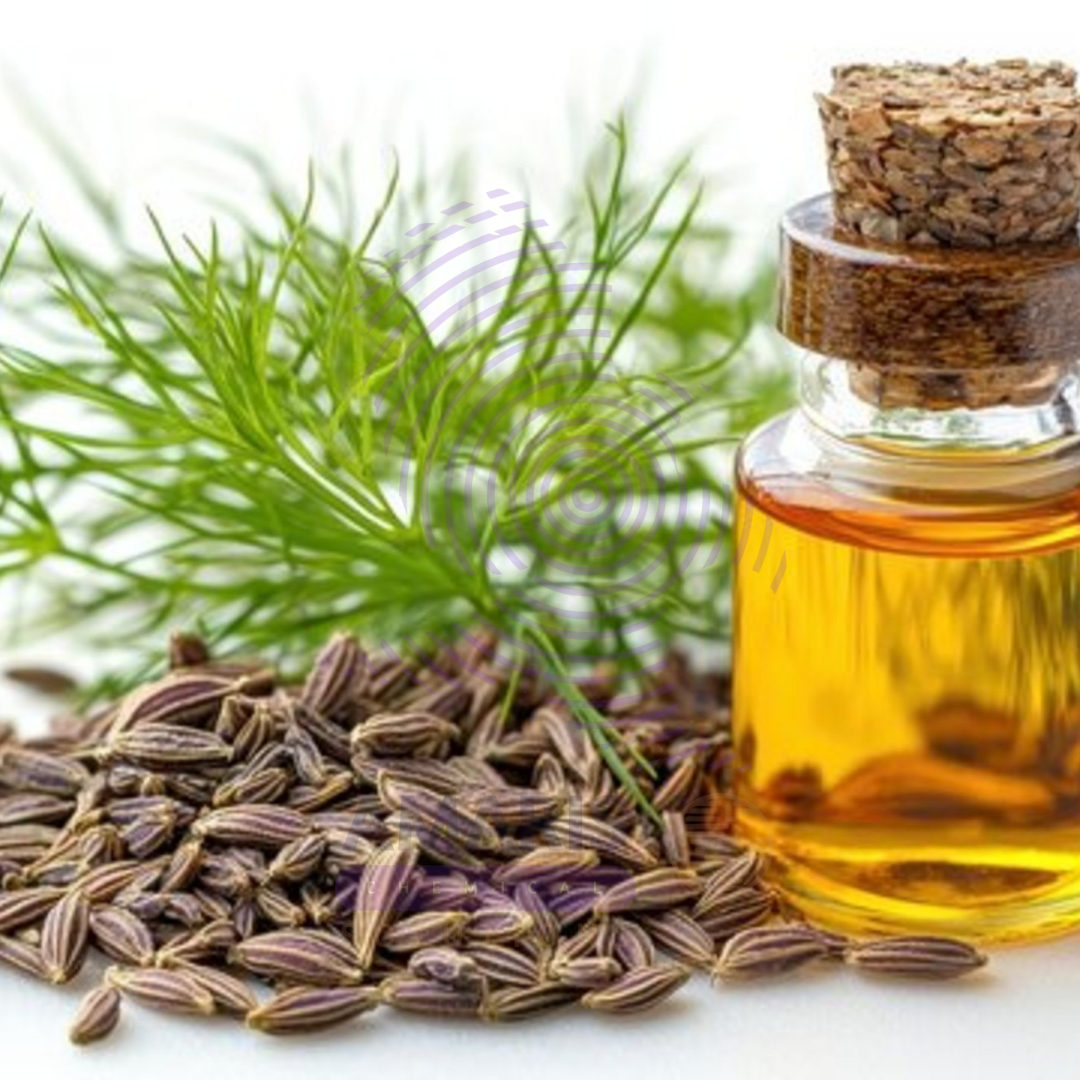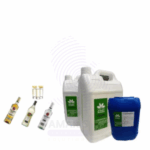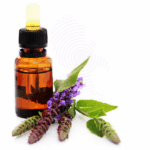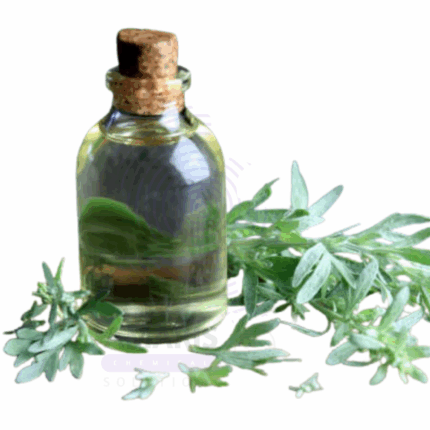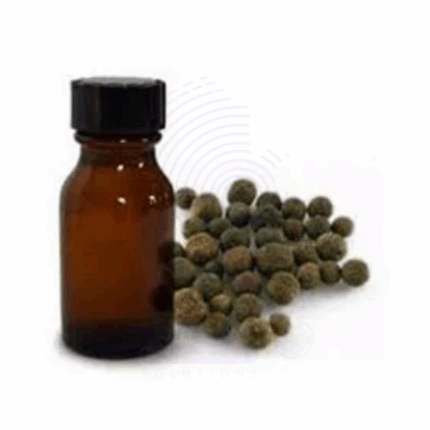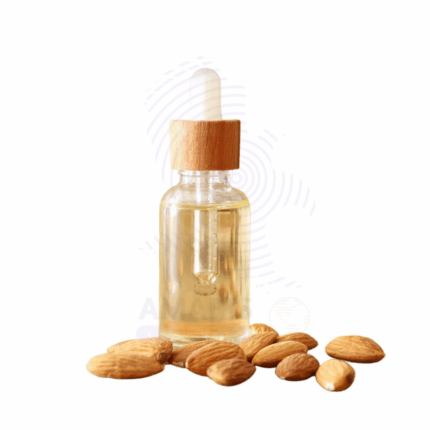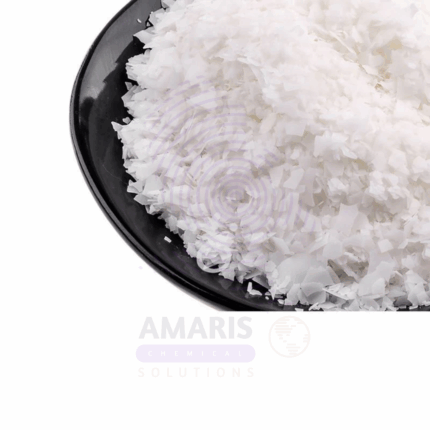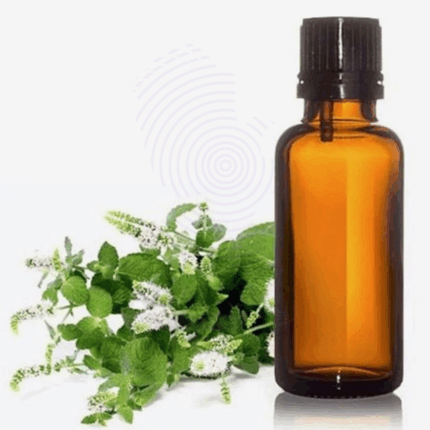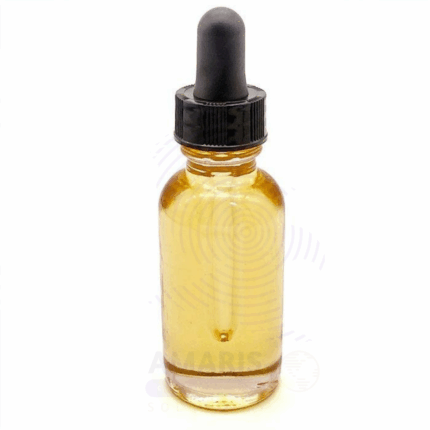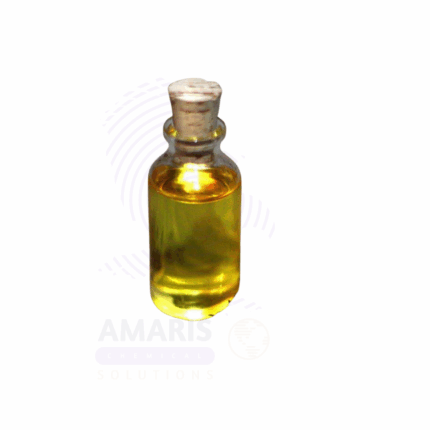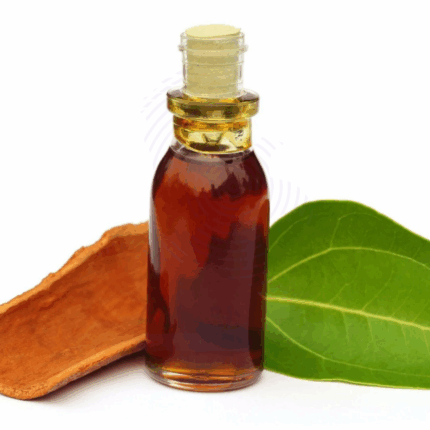Dill Seed Oil
$ 45.13
Whatsapp Order
Dill Seed Oil is an essential oil derived through steam distillation of the dried seeds of the Anethum graveolens plant. Compared to dill herb oil, this variant carries a stronger, spicier, and more pungent aroma with prominent caraway-like notes due to its high carvone content. It is traditionally valued for its digestive, carminative, antispasmodic, and antimicrobial properties.
Dill Seed Oil finds wide application across the pharmaceutical, food and beverage, cosmetic, and aromatherapy sectors. It is also used in perfumery, oral care, pet care, and household cleaning products for its aromatic and therapeutic qualities.
Description
Table of Contents
Toggle
Dill Seed Oil
Primary Uses
- Cosmetics and Personal Care
- Used in natural deodorants and foot sprays for antibacterial and deodorizing effects
- Incorporated in soaps and cleansers for oily or acne-prone skin due to its astringent and purifying properties
- Applied in massage oils and balms for soothing muscle spasms and tension
- Added to toothpaste and mouthwash for its breath-freshening and antimicrobial benefits
- Used in facial oils and creams targeting inflamed or irritated skin
- Pharmaceuticals
- Formulated in gripe water and anti-flatulence preparations to relieve colic and bloating
- Used in herbal tinctures and syrups for digestive discomfort and cramping
- Included in topical stomach liniments and digestive massage oils
- Used in traditional medicine for calming the nervous system and aiding sleep
- Food and Beverage Industry
- Used as a flavoring agent in pickles, chutneys, salad dressings, and condiments
- Added to spice blends, seasoning pastes, and processed meat formulations
- Applied in liqueurs and specialty beverages for its warm, spicy aroma
- Common in bakery and savory snack products for its distinct flavor
- Used in flavor concentrates and essential oil-based food flavoring formulations
- Aromatherapy & Wellness
- Diffused for stress relief, digestive aid, and overall relaxation
- Added to calming oil blends for use in abdominal massage and nervous system support
- Included in aromatherapy roll-ons aimed at relieving digestive discomfort
- Used in nighttime blends to promote relaxation and restful sleep
Secondary Uses
- Pet Care Products
- Used in natural digestive support formulas for dogs (under expert supervision)
- Sometimes added to deodorizing sprays or paw balms
- Household and Cleaning Products
- Used in surface cleaners and kitchen sprays for natural disinfection and spice-like scent
- Added to DIY air fresheners and natural insect repellents
Additional information
| PACK SIZE | 5kg |
|---|
KEY PRODUCT FEATURES
1. Basic Identification Attributes
- Botanical Name: Anethum graveolens
- Common/Trade Name: Dill Seed Oil
- INCI Name: Anethum Graveolens Seed Oil
- CAS Number: 8006-75-5
- HS Code: 3301.29
- Synonyms: Dill Essential Oil, Dill Seed Essential Oil
2. Physical & Chemical Properties
- Physical State: Liquid essential oil
- Color & Odor: Pale yellow to light brown; warm, spicy, caraway-like aroma
- Solubility: Insoluble in water; soluble in alcohol and carrier oils
- Refractive Index: 1.490 – 1.510
- Specific Gravity: 0.950 – 0.980
- Main Components: Carvone, limonene, dill ether
3. Safety & Hazard Attributes
- GHS Classification: May cause skin irritation or sensitization if undiluted
- Toxicity: Low toxicity when diluted; avoid ingestion in large quantities
- Exposure Limits: Follow standard usage concentrations in cosmetics and food
- Allergen Information: Contains carvone, which may cause allergic reactions in sensitive individuals
4. Storage & Handling Attributes
- Storage Conditions: Store in a cool, dark, dry environment away from sunlight
- Container Type: Amber glass bottles or food-grade stainless steel drums
- Shelf Life: 24–36 months if stored properly
- Handling Precautions: Use gloves; keep container tightly closed when not in use
5. Regulatory & Compliance Attributes
- Complies with IFRA guidelines for fragrance use
- GRAS-listed by the FDA for use as a food additive (when food-grade)
- Approved for use in cosmetics, foods, and pharmaceuticals under standard regulatory limits
- Manufactured in GMP-compliant facilities
6. Environmental & Health Impact
- Biodegradability: Biodegradable under natural environmental conditions
- Ecotoxicity: Low toxicity to aquatic life at typical use concentrations
- Bioaccumulation: Not expected to bioaccumulate
SAFETY HANDLING PRECAUTIONS
Safety Handling Precautions
- PPE Required: Gloves and goggles recommended during handling
- Handling Guidelines: Avoid direct inhalation or contact with eyes and mucous membranes
First Aid Measures
- Inhalation: Move to fresh air and rest; seek medical help if breathing issues persist
- Skin Contact: Wash with soap and water; discontinue use if irritation occurs
- Eye Contact: Rinse immediately with clean water for several minutes
- Ingestion: Do not induce vomiting; seek immediate medical attention
Firefighting Measures
- Fire Hazards: Flammable; keep away from heat and open flame
- Extinguishing Media: Use dry chemical, foam, carbon dioxide
- Special Precautions: Use full protective equipment and breathing apparatus
- Hazardous Combustion Products: Carbon monoxide, carbon dioxide, and hydrocarbons
Related products
Absinth Oil
Absinth Oil, also known as Wormwood Essential Oil, is a highly aromatic essential oil extracted through steam distillation from the leaves and flowering tops of the Artemisia absinthium plant. Native to Europe and Asia and known historically for its use in absinthe liqueur, this oil features a sharp, bitter, herbaceous aroma with a green and slightly medicinal edge. Rich in thujone, chamazulene, and other bioactive compounds, Absinth Oil is known for its antimicrobial, anti-inflammatory, and digestive-stimulating properties.
While traditionally associated with herbal medicine and ritualistic use, modern applications of Absinth Oil span personal care, pharmaceuticals, and natural pest repellents. Due to its intensity and potential toxicity in high concentrations, it is used in very controlled amounts in fragrance and therapeutic blends. It is valued for its distinctive scent and potent botanical properties, particularly in cosmetics, aromatherapy, and natural cleaning formulations.
Allspice Pimento Berry Oil
Allspice Pimento Berry Oil is a warm, spicy-sweet essential oil steam-distilled from the dried berries of the Pimenta dioica plant, native to the Caribbean and Central America. Known for its rich, clove-like aroma with hints of cinnamon, nutmeg, and pepper, the oil derives its name from its resemblance to a blend of “all spices.” It contains high concentrations of eugenol and other phenolic compounds, lending it powerful antiseptic, analgesic, and aromatic properties.
Widely used in personal care, massage oils, pharmaceutical balms, and perfumery, Allspice Oil is prized for its warming and comforting scent as well as its therapeutic action. It also finds applications in culinary essence formulations, natural insect repellents, and wellness therapies.
Almond Fragrance Oil
Almond Fragrance Oil is a synthetic or naturally blended aromatic compound designed to replicate the warm, sweet, and nutty scent of almonds. It may incorporate notes of marzipan, vanilla, or cherry-like tones to mimic the characteristic aroma of bitter almonds without the presence of cyanogenic compounds. Unlike essential oils, fragrance oils are created for consistent aroma performance and are widely used across cosmetics, personal care, household products, and scented formulations.
This versatile oil delivers a nostalgic, comforting scent often associated with desserts, cleanliness, and warmth. It is valued for its stability in soaps, lotions, candles, and air care products. Almond Fragrance Oil is typically formulated to be allergen-compliant and IFRA-certified for safe use across applications.
Almond Wax
Almond Wax is a natural, plant-based wax derived from the hydrogenation of almond oil (Prunus amygdalus dulcis). It is a creamy to white, semi-solid wax with a mild, nutty scent and excellent emollient properties. Almond Wax is rich in fatty acids and has a smooth, soft texture, making it ideal for use in cosmetic, personal care, and candle formulations.
Due to its gentle consistency, skin-friendly profile, and moisturizing capabilities, Almond Wax is widely used in body butters, balms, lip care products, massage bars, and artisan soaps. It functions as a natural alternative to petroleum-based waxes and provides structure, viscosity, and glide to formulations. It also finds application in soft wax blends for natural candle products.
Cajaput Oil
Cajaput Oil is a clear, penetrating essential oil obtained via steam distillation of the fresh leaves and twigs of the Melaleuca cajuputi or Melaleuca leucadendra tree, primarily native to Southeast Asia. With its strong, camphoraceous, and slightly fruity aroma, Cajeput Oil is known for its powerful antiseptic, analgesic, and expectorant properties. Rich in 1,8-cineole (eucalyptol), this oil has been traditionally used in topical rubs, respiratory blends, and muscle-relieving formulations.
Cajeput Oil is widely used in cosmetics, personal care, aromatherapy, and natural medicine products for its invigorating and purifying effects on both skin and the respiratory system. It is often compared to tea tree and eucalyptus oils due to its similar therapeutic actions.
Calmintha Oil
Calmintha Oil is an aromatic essential oil derived through steam distillation of the aerial parts of Calamintha nepeta or closely related species within the Calamintha genus. Also known as lesser calamint, Calmintha is a herbaceous plant known for its minty, slightly camphoraceous fragrance with subtle floral undertones. The oil is rich in compounds such as pulegone, menthone, and isomenthone, which contribute to its invigorating, clarifying, and antimicrobial properties.
Used in traditional herbal medicine, perfumery, and aromatherapy, Calmintha Oil offers refreshing aromatic effects and is frequently utilized in respiratory blends, skin formulations, and natural cleaning products. Due to its high pulegone content, topical use should be limited and well-diluted.
Caraway Oil
Caraway Oil is a volatile essential oil steam-distilled from the dried seeds of the Caraway plant (Carum carvi), a member of the Apiaceae family. It has a spicy, sweet, herbaceous aroma with warm undertones and is pale yellow to colorless in appearance. Known for its long-standing use in traditional herbal medicine and culinary flavoring, Caraway Oil contains carvone and limonene as its major constituents, responsible for its distinct aroma and therapeutic effects.
This oil is widely used in aromatherapy, digestive remedies, cosmetics, and pharmaceutical formulations. It is also valued in flavor manufacturing and oral care products for its carminative and antimicrobial properties.
Cassia Oil
Cassia Oil is a potent essential oil steam-distilled from the bark of Cinnamomum cassia, commonly known as Chinese cinnamon. It carries a strong, spicy, and warm aroma similar to true cinnamon but is more pungent and intense. Its reddish-brown to yellow appearance and high cinnamaldehyde content give it powerful antimicrobial, antifungal, and warming properties. Cassia Oil is used across various industries including food flavoring, pharmaceuticals, cosmetics, aromatherapy, and household products. Due to its strength, it is typically used in diluted concentrations.


 Preservatives(food)
Preservatives(food) Flavor Enhancers
Flavor Enhancers Acidulants
Acidulants Sweeteners
Sweeteners Antioxidants
Antioxidants Colorants(food)
Colorants(food) Nutraceutical Ingredients (food)
Nutraceutical Ingredients (food) Nutrient Supplements
Nutrient Supplements Emulsifiers
Emulsifiers
 Collectors
Collectors Dust Suppressants
Dust Suppressants Explosives and Blasting Agents
Explosives and Blasting Agents Flocculants and Coagulants
Flocculants and Coagulants Frothers
Frothers Leaching Agents
Leaching Agents pH Modifiers
pH Modifiers Precious Metal Extraction Agents
Precious Metal Extraction Agents
 Antioxidants(plastic)
Antioxidants(plastic) Colorants (Pigments, Dyes)
Colorants (Pigments, Dyes) Fillers and Reinforcements
Fillers and Reinforcements Flame Retardants
Flame Retardants Monomers
Monomers Plasticizers
Plasticizers Polymerization Initiators
Polymerization Initiators Stabilizers (UV, Heat)
Stabilizers (UV, Heat)
 Antifoaming Agents
Antifoaming Agents Chelating Agents
Chelating Agents Coagulants and Flocculants
Coagulants and Flocculants Corrosion Inhibitors
Corrosion Inhibitors Disinfectants and Biocides
Disinfectants and Biocides Oxidizing Agents
Oxidizing Agents pH Adjusters
pH Adjusters Scale Inhibitors( water)
Scale Inhibitors( water)
 Antioxidants(cosmetic)
Antioxidants(cosmetic) Emollients
Emollients Fragrances and Essential Oils
Fragrances and Essential Oils Humectants
Humectants Preservatives
Preservatives Surfactants(cosmetic)
Surfactants(cosmetic) Thickeners
Thickeners UV Filters
UV Filters
 Fertilizers
Fertilizers Soil Conditioners
Soil Conditioners Plant Growth Regulators
Plant Growth Regulators Animal Feed Additives
Animal Feed Additives Biostimulants
Biostimulants Pesticides (Herbicides, Insecticides, Fungicides)
Pesticides (Herbicides, Insecticides, Fungicides)
 Active Pharmaceutical Ingredients (APIs)
Active Pharmaceutical Ingredients (APIs) Excipients
Excipients Solvents(pharmaceutical)
Solvents(pharmaceutical) Antibiotics
Antibiotics Antiseptics and Disinfectants
Antiseptics and Disinfectants Vaccine Adjuvants
Vaccine Adjuvants Nutraceutical Ingredients (pharmaceutical)
Nutraceutical Ingredients (pharmaceutical) Analgesics & Antipyretics
Analgesics & Antipyretics
 Analytical Reagents
Analytical Reagents Solvents(lab)
Solvents(lab) Chromatography Chemicals
Chromatography Chemicals Spectroscopy Reagents
Spectroscopy Reagents microbiology-and-cell-culture-reagents
microbiology-and-cell-culture-reagents Molecular Biology Reagents
Molecular Biology Reagents Biochemical Reagents
Biochemical Reagents Inorganic and Organic Standards
Inorganic and Organic Standards Laboratory Safety Chemicals
Laboratory Safety Chemicals Specialty Laboratory Chemicals(Special Laboratory Equipment)
Specialty Laboratory Chemicals(Special Laboratory Equipment)
 Demulsifiers
Demulsifiers Hydraulic Fracturing Fluids
Hydraulic Fracturing Fluids Scale Inhibitors(oil)
Scale Inhibitors(oil) Surfactants(oil)
Surfactants(oil) Drilling Fluids
Drilling Fluids
 Dyes and Pigments
Dyes and Pigments Bleaching Agents
Bleaching Agents Softening Agents
Softening Agents Finishing Agents
Finishing Agents Antistatic Agents
Antistatic Agents
 Admixtures
Admixtures Waterproofing Agents
Waterproofing Agents Sealants and Adhesives
Sealants and Adhesives Curing Compounds
Curing Compounds Concrete Repair Chemicals
Concrete Repair Chemicals Anti-Corrosion Coatings
Anti-Corrosion Coatings
 Surfactants(cleaning)
Surfactants(cleaning) Builders
Builders Enzymes
Enzymes Solvents (Cleaning)
Solvents (Cleaning) Fragrances
Fragrances
 Electronic Chemicals
Electronic Chemicals Catalysts
Catalysts Lubricants
Lubricants Photographic Chemicals
Photographic Chemicals Refrigerants
Refrigerants Automotive chemicals
Automotive chemicals Pyrotechnic Chemicals
Pyrotechnic Chemicals
 Biodegradable Surfactants
Biodegradable Surfactants Bio-based Solvents
Bio-based Solvents Renewable Polymers
Renewable Polymers Carbon Capture Chemicals
Carbon Capture Chemicals Wastewater Treatment Chemicals
Wastewater Treatment Chemicals
 Pigments
Pigments Solvents(paint)
Solvents(paint) Specialty Coatings
Specialty Coatings Binders/Resins
Binders/Resins Additives
Additives Driers
Driers Anti-Corrosion Agents
Anti-Corrosion Agents Functional Coatings
Functional Coatings Application-Specific Coatings
Application-Specific Coatings
 Leavening Agents
Leavening Agents Dough Conditioners
Dough Conditioners Flour Treatments
Flour Treatments Fat Replacers
Fat Replacers Decoratives
Decoratives Preservatives(baking)
Preservatives(baking)
 Plasticizers & Softeners
Plasticizers & Softeners Reinforcing Agents
Reinforcing Agents Adhesion Promoters
Adhesion Promoters Vulcanizing Agents
Vulcanizing Agents Antidegradants
Antidegradants Blowing Agents
Blowing Agents Fillers & Extenders
Fillers & Extenders Accelerators & Retarders
Accelerators & Retarders